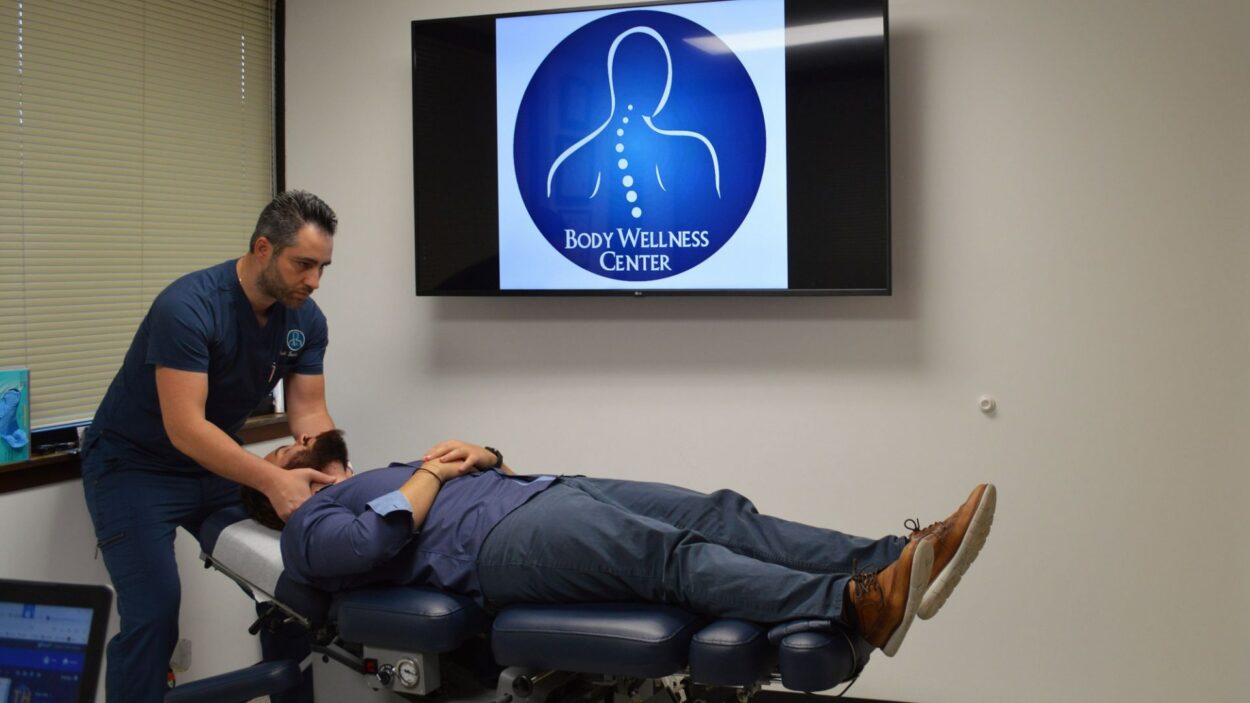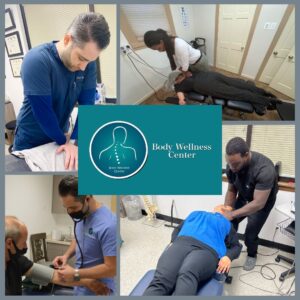Carpal Tunnel Syndrome Rehab
Carpal Tunnel Pain Relief
Physical Therapy for Carpal Tunnel
Non-Surgical Relief From Symptoms
Holistic Treatment For Numbness & Tingling
Post-Surgical Carpal Tunnel Syndrome Rehab
Best Carpal Tunnel Treatment in NJ
Clifton (973) 246-9355
Kearny (201) 772-5162
Paterson 973-782-2222
Clifton (973) 246-9355
Kearny (201) 772-5162
Paterson (973) 782-2222

What is Carpal Tunnel Syndrome?
Carpal Tunnel Syndrome is a condition that arises when the hand’s median nerve becomes compressed, obstructed, or pressured. This condition should be taken seriously as the median nerve is involved in several movements pertaining to the front side of the palm and much of the thumb, index finger, middle finger, and more. Any kind of damage to it (or in the adjoining areas) can cause a variety of problems in one’s daily and long-term life.
Essentially, the carpal tunnel is a slim passageway containing bones and ligaments. When the median nerve in this region gets affected, it can lead to issues such as partial to severe numbness, shakiness, tingling sensations, and general weakness in the adjoining areas. In most cases, an individual can get Carpal Tunnel Syndrome because of genetic factors, general health issues, basic anatomy or structure of their wrists, and repetitive motions of their hands.
Carpal Tunnel Pain Relief
Physical Therapy for Carpal Tunnel
Non-Surgical Relief From Symptoms
Holistic Treatment For Numbness & Tingling
Post-Surgical Carpal Tunnel Syndrome Rehab
Available in Clifton, Kearny, & Paterson NJ

What is Carpal Tunnel Syndrome?
Carpal Tunnel Syndrome is a condition that arises when the hand’s median nerve becomes compressed, obstructed, or pressured. This condition should be taken seriously as the median nerve is involved in several movements pertaining to the front side of the palm and much of the thumb, index finger, middle finger, and more. Any kind of damage to it (or in the adjoining areas) can cause a variety of problems in one’s daily and long-term life.
Essentially, the carpal tunnel is a slim passageway containing bones and ligaments. When the median nerve in this region gets affected, it can lead to issues such as partial to severe numbness, shakiness, tingling sensations, and general weakness in the adjoining areas. In most cases, an individual can get Carpal Tunnel Syndrome because of genetic factors, general health issues, basic anatomy or structure of their wrists, and repetitive motions of their hands.
Carpal Tunnel Syndrome Symptoms
Carpal Tunnel Syndrome Symptoms
In quite a few cases, Carpal Tunnel Syndrome is hard to diagnose as its symptoms tend to come on gradually. Some of the main problems that arise out of Carpal Tunnel Syndrome are discomfort, numbness, pain, tingling, and weakness in the fingers and wrist area. Some of the other symptoms can include burning within the skin, extra stiffness when moving, and cramping around the most affected areas. One can also feel these symptoms in their hands, forearms, and other areas around their wrists. In the most severe cases, it can become harder for people to move their wrists, thumb, and other fingers.
The main symptoms like discomfort and pain can get worse while people try to sleep at night. This is because most sleeping positions tend to add more pressure to the palm areas of their hands. This not causes difficulty in switching off but can also wake people from their sleep. Other symptoms include burning, cramping, and stiffness in the hand and fingers.
Causes of Carpal Tunnel Syndrome
In most cases, Carpal Tunnel Syndrome arises because of inflammation and swelling around the median nerve within the carpal tunnel. This can ultimately occur when a patient is already suffering from health issues like rheumatoid arthritis and diabetes. Since the median nerve and tendons around it control the movement and sensations of the palm and other major fingers, one can face a variety of problems if it gets inflamed or swollen.
Multiple reports suggest that certain pharmaceuticals and medications for the above-mentioned health issues can sometimes even catalyze Carpal Tunnel Syndrome. If one experiences the symptoms of Carpal Tunnel Syndrome because of their medication, they should consult with their doctor and try to switch their prescriptions.
Also, most data in the field suggests that Carpal Tunnel Syndrome heavily affects the dominant hands of women between the age group of twenty-five to fifty years old. It is most commonly found in those women who are either too involved in industrial work or computer work. Carpal Tunnel Syndrome can also lead to other health problems such as diabetes.
Diagnosing Carpal Tunnel Syndrome
Carpal Tunnel Syndrome can be diagnosed by checking one’s hand, wrist, and fingers for any irregularities in sensations, movements, discomfort, and more. Professionals usually use mechanical processes (with hands) or may even use some simple mechanical devices to perform their diagnosis. Nerve pinching is another effective process for checking the sensation levels in the hand.
Two conditions that are often misdiagnosed as Carpal Tunnel Syndrome are usually arthritis and wrist tendonitis. However, some of the symptoms may also be similar to other health issues like repetitive strain injury (RSI) and thoracic outlet syndrome (TOS). Thus, one should always research and find the right type of professionals who have prior experience in determining and dealing with CTS.
Carpal Tunnel Syndrome Treatment
Carpal Tunnel Syndrome can be treated in a variety of ways but most methods and procedures depend on the intensity, location, and type of symptoms that are experienced by the individual.
If patients have been diagnosed with Carpal Tunnel Syndrome, the first thing they should do is take good rest and avoid doing tasks that can increase discomfort or pain. Professionals then assess the situation to map out the best course of action. Most CTS problems are caused due to accidents, injuries, or inflammation within the wrist area. The most commonly used, yet effective treatment for this includes the use of a wrist splint. This device restricts movement while also maintaining or reducing some of the symptoms like excessive discomfort or pain.
The most preferred way of treating Carpal Tunnel Syndrome is through splinting and physical therapy and exercises. With the right type of therapy and exercises, one can easily soothe symptoms and reduce the overall impact and scope of the problem. In severe cases, when there are no improvements through splinting or physical therapy, one may need to undergo surgery – under the guidance and approval of a trained and trusted doctor.
Carpal Tunnel Syndrome Surgery
Surgeries are done to reduce stress on the median nerve as this helps in relieving the main symptoms such as pain, tingling sensations, and weaknesses. In most cases, patients aren’t even required to spend the night at the hospital when getting their Carpal Tunnel Syndrome surgery done. After the procedure, the hand, wrist, and fingers are enclosed with a surgical dressing and a splinting device so the whole area can be kept movement-free and protected. After a few days, patients are advised to perform certain hand and wrist exercises to regain and improve their mobility and strength.
Carpal Tunnel Syndrome Rehab & Treatment with Body Wellness Center in New Jersey
At Body Wellness Center, we create customized and highly effective post-surgical Carpal Tunnel Syndrome rehab programs that will help you heal your problems so you can get your finger, hand, and wrist mobility and strength back.
Our experienced, professional, and trusted Carpal Tunnel Syndrome rehab team at Body Wellness Center will conduct a thorough evaluation of your exact problem, find the root cause of the issue, and plan and execute your smoothest and quickest road to full recovery.
If you are experiencing any kind of Carpal Tunnel Syndrome related symptoms around your fingers, hands, or wrists, do not hesitate to contact us today! To connect with us, you can either visit our website at www.bodywellnessnj.com or call us at (973) 246-9355.
Carpal Tunnel Syndrome Symptoms
Carpal Tunnel Syndrome Symptoms
In quite a few cases, Carpal Tunnel Syndrome is hard to diagnose as its symptoms tend to come on gradually. Some of the main problems that arise out of Carpal Tunnel Syndrome are discomfort, numbness, pain, tingling, and weakness in the fingers and wrist area. Some of the other symptoms can include burning within the skin, extra stiffness when moving, and cramping around the most affected areas. One can also feel these symptoms in their hands, forearms, and other areas around their wrists. In the most severe cases, it can become harder for people to move their wrists, thumb, and other fingers.
The main symptoms like discomfort and pain can get worse while people try to sleep at night. This is because most sleeping positions tend to add more pressure to the palm areas of their hands. This not causes difficulty in switching off but can also wake people from their sleep. Other symptoms include burning, cramping, and stiffness in the hand and fingers.
Causes of Carpal Tunnel Syndrome
In most cases, Carpal Tunnel Syndrome arises because of inflammation and swelling around the median nerve within the carpal tunnel. This can ultimately occur when a patient is already suffering from health issues like rheumatoid arthritis and diabetes. Since the median nerve and tendons around it control the movement and sensations of the palm and other major fingers, one can face a variety of problems if it gets inflamed or swollen.
Multiple reports suggest that certain pharmaceuticals and medications for the above-mentioned health issues can sometimes even catalyze Carpal Tunnel Syndrome. If one experiences the symptoms of Carpal Tunnel Syndrome because of their medication, they should consult with their doctor and try to switch their prescriptions.
Also, most data in the field suggests that Carpal Tunnel Syndrome heavily affects the dominant hands of women between the age group of twenty-five to fifty years old. It is most commonly found in those women who are either too involved in industrial work or computer work. Carpal Tunnel Syndrome can also lead to other health problems such as diabetes.
Diagnosing Carpal Tunnel Syndrome
Carpal Tunnel Syndrome can be diagnosed by checking one’s hand, wrist, and fingers for any irregularities in sensations, movements, discomfort, and more. Professionals usually use mechanical processes (with hands) or may even use some simple mechanical devices to perform their diagnosis. Nerve pinching is another effective process for checking the sensation levels in the hand.
Two conditions that are often misdiagnosed as Carpal Tunnel Syndrome are usually arthritis and wrist tendonitis. However, some of the symptoms may also be similar to other health issues like repetitive strain injury (RSI) and thoracic outlet syndrome (TOS). Thus, one should always research and find the right type of professionals who have prior experience in determining and dealing with CTS.
Carpal Tunnel Syndrome Treatment
Carpal Tunnel Syndrome can be treated in a variety of ways but most methods and procedures depend on the intensity, location, and type of symptoms that are experienced by the individual.
If patients have been diagnosed with Carpal Tunnel Syndrome, the first thing they should do is take good rest and avoid doing tasks that can increase discomfort or pain. Professionals then assess the situation to map out the best course of action. Most CTS problems are caused due to accidents, injuries, or inflammation within the wrist area. The most commonly used, yet effective treatment for this includes the use of a wrist splint. This device restricts movement while also maintaining or reducing some of the symptoms like excessive discomfort or pain.
The most preferred way of treating Carpal Tunnel Syndrome is through splinting and physical therapy and exercises. With the right type of therapy and exercises, one can easily soothe symptoms and reduce the overall impact and scope of the problem. In severe cases, when there are no improvements through splinting or physical therapy, one may need to undergo surgery – under the guidance and approval of a trained and trusted doctor.
Carpal Tunnel Syndrome Surgery
Surgeries are done to reduce stress on the median nerve as this helps in relieving the main symptoms such as pain, tingling sensations, and weaknesses. In most cases, patients aren’t even required to spend the night at the hospital when getting their Carpal Tunnel Syndrome surgery done. After the procedure, the hand, wrist, and fingers are enclosed with a surgical dressing and a splinting device so the whole area can be kept movement-free and protected. After a few days, patients are advised to perform certain hand and wrist exercises to regain and improve their mobility and strength.
Carpal Tunnel Syndrome Rehab & Treatment with Body Wellness Center in New Jersey
At Body Wellness Center, we create customized and highly effective post-surgical Carpal Tunnel Syndrome rehab programs that will help you heal your problems so you can get your finger, hand, and wrist mobility and strength back.
Our experienced, professional, and trusted Carpal Tunnel Syndrome rehab team at Body Wellness Center will conduct a thorough evaluation of your exact problem, find the root cause of the issue, and plan and execute your smoothest and quickest road to full recovery.
If you are experiencing any kind of Carpal Tunnel Syndrome related symptoms around your fingers, hands, or wrists, do not hesitate to contact us today! To connect with us, you can either visit our website at www.bodywellnessnj.com or call us at (973) 246-9355.


 Body Wellness Center In New Jersey
Body Wellness Center In New Jersey
 Body Wellness Center In Clifton, Kearny, & Paterson, NJ
Body Wellness Center In Clifton, Kearny, & Paterson, NJ
